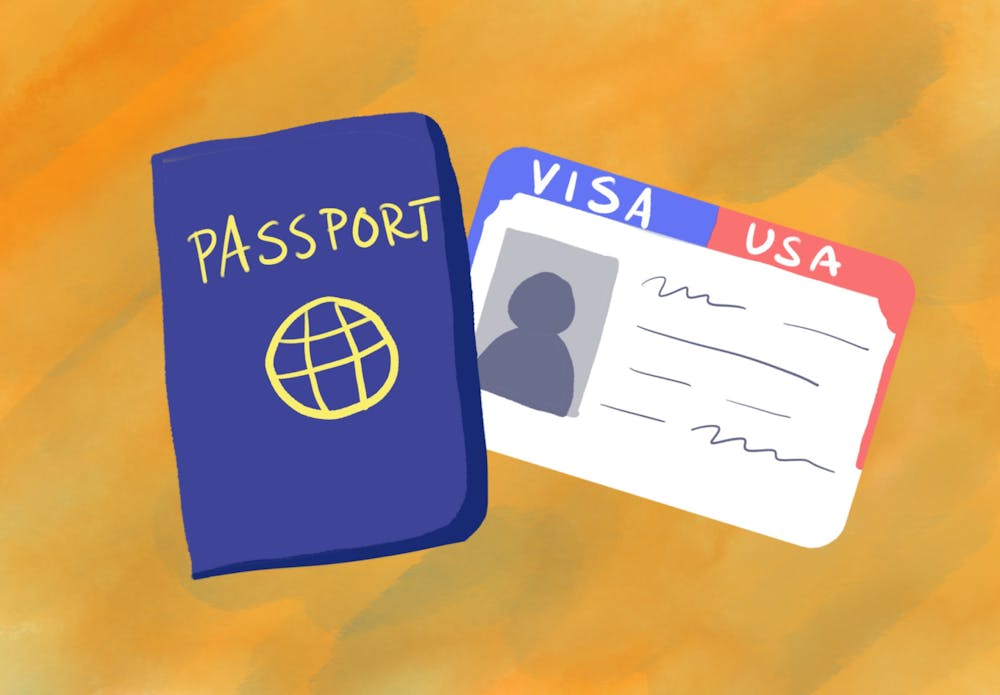Five international visas revoked at Rice

Federal authorities have revoked visas for five international affiliates at Rice — three current students and two recent graduates, President Reginald DesRoches announced in an April 11 message to campus. The revocations are “not related to social activism or protests,” a university spokesperson told the Thresher.
“Rice continues to believe it can both follow the law and honor the long-held values that guide how we treat each other,” DesRoches wrote in his campuswide message.
Rice joins dozens of other universities witnessing federal crackdowns on their campuses. As of April 14, the Trump administration has revoked visas from over 1,100 international students across 150 higher education institutions.
On March 6, U.S. Secretary of State Marco Rubio unveiled a program titled “Catch and Revoke” to identify “foreign nationals who appear to support Hamas or other designated terror groups,” Axios originally reported. The “Catch and Revoke” program, which uses artificial intelligence to survey social media accounts, revoked over 300 student visas within its first three weeks.
“Everyone is fair game,” a senior State Department official told Axios March 27.
The U.S. government recently froze $2.2 billion in funding from Harvard University — which has seen 12 visa revocations so far — after its president refused to comply with federal demands to end diversity programming and obey immigration authorities. Peer institutions like Stanford and Princeton swiftly showed support for Harvard. While Rice has sent messages offering support for its international students, it has yet to follow suit.
International students must obtain legal documentation, often an F-1 visa, granting them legal residency in the U.S. during the course of their education. While an affected visa typically does not affect a student’s legal status, it bars their re-entry into the U.S. But when a student’s legal status is revoked, they’re immediately at risk of detention.
“No administration should be allowed to circumvent the law to unilaterally strip students of their status, disrupt their studies, and put them at risk of deportation,” attorneys at the ACLU of Michigan wrote April 10 in a federal lawsuit. The suit was filed on behalf of local students, whose visas were “unlawfully and abruptly terminated by the Trump administration,” the complaint alleges.
It’s still unclear what is motivating most of these terminations. In the “vast majority” of campus cases, universities like Rice say visa revocations were not linked to student protests — although some of the nation’s most publicized cases have been.
Mahmoud Khalil, a Columbia University student who participated in pro-Palestine demonstrations on campus, was detained by ICE agents on March 8. Khalil, a legal U.S. resident, is eligible for deportation, a Louisiana immigration judge ruled on April 11.
Another student, Rumeysa Ozturk — who attends Tufts University and hails from Türkiye — was arrested by ICE agents on March 25, seemingly in connection to an op-ed she penned a year prior. Both Khalil and Ozturk’s arrests mark the Trump administration’s period of heightened scrutiny toward international students.
In Texas, more than 250 international students’ immigration statuses have been revoked as of April 14. DesRoches reaffirmed the university’s support for international students in his April 11 message.
Just a month ago, hundreds of students petitioned Rice to declare itself a “sanctuary campus,” which would protect international and undocumented students from federal immigration enforcement. Despite the visa revocations, there’s been no activity from immigration officials on campus, DesRoches wrote.
Earlier this month, Provost Amy Dittmar sent a campus-wide message outlining university guidelines for international travel, especially for non-U.S. citizens facing increased risks.
“Events at other universities have made it clear that we have entered a period of intensive immigration law enforcement for university communities in the United States,” Dittmar wrote in her April 1 message.
In that same message, Dittmar announced a new International Travel Incident Response Team and urged non-U.S. citizens at Rice to “carefully reconsider non-essential travel outside the United States.”
More from The Rice Thresher

Modified Beer Bike races rescheduled to April 18
Beer Bike races have been rescheduled for April 18 at 5-8 p.m. The makeup event was announced in an email to Beer Bike captains, coordinators and stakeholders, from the campuswide coordinators and the Bike Captains Planning Committee.

Good Friday and college night overlap sparks ire among students
Four college nights are happening on Good Friday this year. This overlap has caused controversy amongst students who observe the high holy day.

Students discuss budget allocations at SA
Senate meetings are usually a quiet affair — but this Monday, there was a lively debate over the Blanket Tax Committee’s 2025-26 funding allocations. Rice Women’s Resource Center and ktru waved signs and protested funding cuts to Blanket Tax Organizations, which are funded by the Blanket Tax.

Please note All comments are eligible for publication by The Rice Thresher.